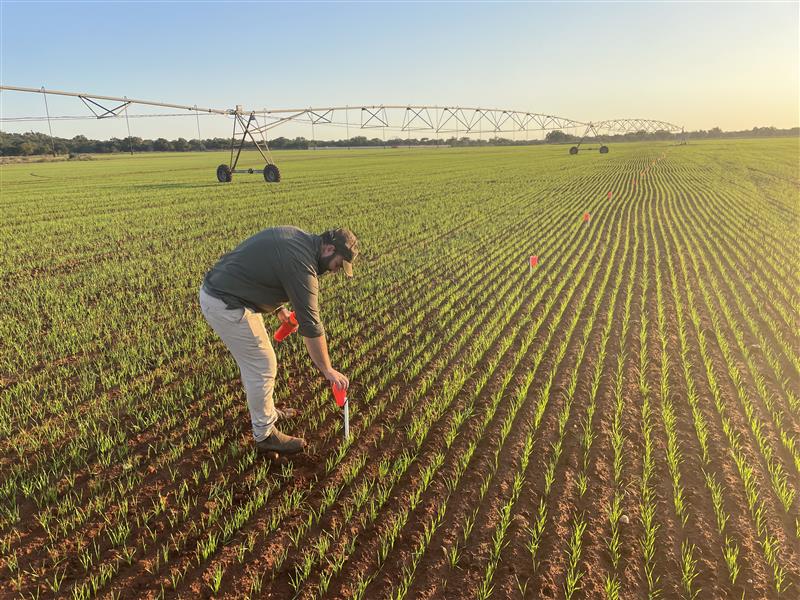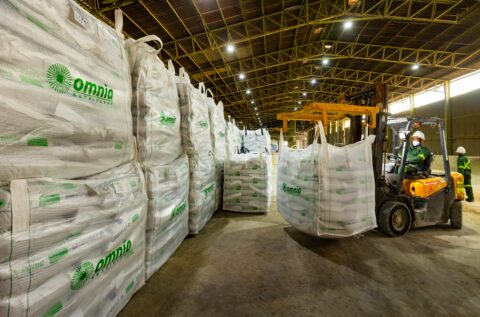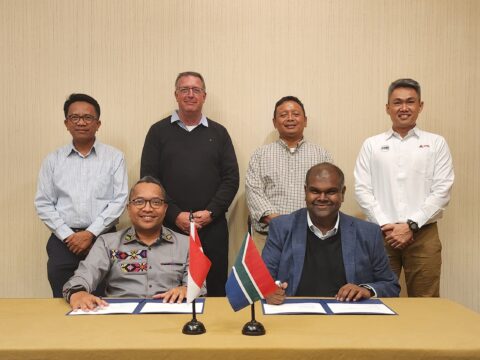World Food Day
Omnia’s Role In South Africa’s Sustainable Farming Evolution
According to a recent Mordor Intelligence report, the agricultural sector was worth USD17.3 billion in 2025, and projections suggest it to increase to USD25 billion by 2030. Driving this economic expansion is a focus on sustainable farming, which is essential for ensuring the agricultural sector’s longevity and economic resilience.
According to Louis Strydom, Sales and Marketing Director at Omnia Agriculture, from a farming perspective, sustainability means cultivating crops or raising livestock in a way that balances current food security needs with those of future generations, while aligning with broader ESG principles that promote environmental responsibility, social impact, and long-term economic viability. “This involves considering entire ecosystems and ensuring all resources are used responsibly. The goal is to provide everyone with access to food without compromising the ability of future generations to do the same,” says Strydom
Omnia has been strategically investing in South Africa’s agricultural industry for more than 70 years through the use of its Nutriology® model, a comprehensive customer proposition that emphasises sustainable crop production. According to Strydom, the model involves a combined effort of specialised fertilizer products, innovative solutions and technology, as well as partnering with farmers who are supported by trained agronomists to optimise yields and reduce production risks, while in turn, enhancing the return on investment. “As an Agriculture industry, this philosophy drives everything we do. For Omnia, this philosophy has been turned into a science, in line with our purpose”.
A holistic and bespoke approach to farming success
The Omnia Nutriology® model is built on 12 key elements: Partners, Products, Production facilities, Quality, Relationships, Research and Development services, Technology, Agronomists, Values, the Environment, Investments and Support services. This approach is designed to offer tailored farming solutions to support farmers improve their productivity. “Fertilizer is often the last thing to add to the list,” says Strydom. “First, we have to understand the soil’s biological, chemical, and physical properties before we’re able to make recommendations tailored to the needs of the crop, field, and the farmer requirements.”
Big tech meets local land
Today, innovations in agriculture are being shaped by advances such as next-generation breeding in the seed industry, technology and the use of microorganisms and biostimulants. The growing consumer demand for sustainably produced food, the banning of certain agrochemicals and concerns about the environment are key drivers pushing the industry toward more eco-friendly practices.
Furthermore, data and digital technology are vital in shaping Omnia’s approach to precision farming. “Our strategies are deeply rooted in extensive datasets, ensuring that our recommendations are technically sound and evidence-based, which in turn champions sustainable methods.” Tools like OMNIRISK-IQ™ (calculates yield probability in a certain zone) or OMNIPIVOT™ (assists in irrigation scheduling) help us tailor solutions to specific needs, which maximises efficiency. Additionally, precision in weed spraying not only minimises chemical usage but also prevents over-application, promoting sustainable farming practices.
When it comes to fertilizer, minor choices have significant consequences. Some nitrogen sources are cleaner and kinder to the environment than others. We have seen that when farmers make these smarter choices less nitrogen is used, water use efficiency has increased whilst crops come out stronger. Those aren’t theories, they’re results farmers can see in their fields season after season, as we strive to create a greener future.
According to Strydom every recommendation comes from research, field trials, and global experience which is tailored to local conditions. “Knowledge transfer is key. We can’t promise results that haven’t been proven” he says.
Precision farming tools bring these recommendations to life. GPS-guided vehicles, autonomous systems, and variable-rate application allow nutrients to be applied where they are needed. Artificial Intelligence can even identify weeds for targeted spraying. Combining technology with crop monitoring reduces risk, protects resources, and increases the sustainability of how we farm.
Strydom concludes, the next five years will test every part of our food system. Farmers will face more brutal weather conditions, pressure on margins, and rising expectations from consumers. “Our role remains to partner with farmers – proving what works, sharing knowledge, and keeping farming both productive and responsible. Sustainable farming is the only way to grow food without eating into tomorrow.”





